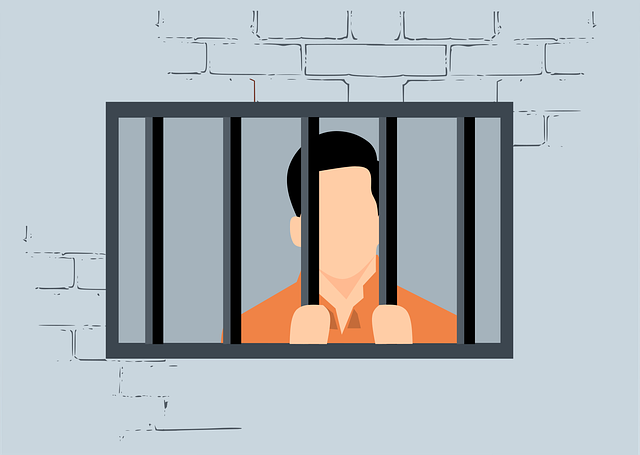Youth DUI (Driving Under the Influence) is a pressing global issue, especially among teens aged 15-20 due to curiosity and peer pressure. Traditional law enforcement alone is insufficient; comprehensive Youth DUI Prevention Programs are crucial. These programs focus on education, awareness, and support services through interactive workshops and counseling to empower teens, address root causes like substance abuse and mental health issues, and promote responsible driving. Tailored interventions for vulnerable populations and community collaboration help break addiction cycles and foster positive development. Effective Youth DUI Prevention Programs use peer mentorship, decision-making skills training, and group therapy to normalize conversations about alcohol consumption, deter underage drinking, and prevent future incidents, aiming for safer roads and lives free from impaired driving among youth.
Teen Rehabilitation Back on Track delves into the pressing issue of Youth DUI (drunk driving under age 21) and offers a comprehensive approach to prevention. We explore the current scenario, identifying risk factors and vulnerable populations. The article presents effective strategies for youth DUI prevention, designs tailored rehabilitation programs, and emphasizes community involvement as vital support systems for teen recovery. By integrating these key elements, we aim to equip parents, educators, and communities with essential tools to keep teens safe on the road.
- Understanding Youth DUI: The Current Scenario
- Identifying Risk Factors and Vulnerable Populations
- Effective Strategies for DUI Prevention Among Teens
- Designing Comprehensive Rehabilitation Programs
- Community Involvement and Support Systems for Teen Recovery
Understanding Youth DUI: The Current Scenario

In today’s digital era, the issue of Youth DUI (Driving Under the Influence) has become a pressing concern among communities worldwide. The statistic paints a concerning picture: teens aged 15-20 are at a significantly higher risk of engaging in impaired driving, often due to curiosity, peer pressure, or a lack of maturity when it comes to understanding the consequences of their actions. This alarming trend highlights the urgent need for comprehensive Youth DUI Prevention Programs to educate and empower young individuals.
The current scenario reveals that traditional methods of law enforcement and punishment alone are not sufficient in deterring teens from this dangerous behavior. Instead, prevention programs focused on raising awareness, providing education, and offering support services can make a significant impact. These initiatives often involve interactive workshops, peer-to-peer discussions, and access to counseling to help teens understand the risks, make informed decisions, and develop healthy coping mechanisms. By targeting the root causes of Youth DUI, these programs strive to create a safer future for our roads and promote responsible behavior among young drivers.
Identifying Risk Factors and Vulnerable Populations

Identifying risk factors is a pivotal step in teen rehabilitation, especially for at-risk youth. This includes understanding and addressing issues like substance abuse, mental health disorders, family history of addiction, peer pressure, and exposure to violence or trauma. Youth DUI Prevention Programs play a significant role here, focusing on education and intervention to deter young people from risky behaviors. By targeting these vulnerabilities early, prevention strategies can help steer teens back on track.
Vulnerable populations, such as those from low-income families or with limited access to quality healthcare and education, often face higher rates of substance abuse and related issues. Effective identification allows for tailored interventions, ensuring that resources reach those who need them most. This proactive approach is crucial in breaking the cycle of addiction and promoting positive development among teens.
Effective Strategies for DUI Prevention Among Teens

Teenagers engaging in driving under the influence (DUI) poses a significant concern for communities worldwide. Preventing this behavior requires a multi-faceted approach that combines education, accountability, and support. Implementing tailored Youth DUI Prevention Programs has proven to be an effective strategy. These programs focus on raising awareness about the dangers of drinking and driving among teens, often utilizing peer mentorship and interactive workshops. By involving peers in the educational process, these initiatives create a sense of collective responsibility and encourage healthier choices.
Moreover, parental involvement and community collaboration are integral components of successful Youth DUI Prevention Programs. Parents play a crucial role in setting expectations and guiding their children towards making responsible decisions. Community partnerships with local schools, law enforcement agencies, and rehabilitation centers can help normalize conversations about alcohol consumption and its consequences, ultimately deterring underage drinking and driving.
Designing Comprehensive Rehabilitation Programs

Designing comprehensive rehabilitation programs is essential for teen DUI prevention. These programs must address the multifaceted needs of young individuals who have been involved in alcohol-related driving incidents, going beyond mere punishment to foster genuine change and personal growth. Effective programs incorporate education on the dangers of drinking and driving, individual counseling to address underlying issues like peer pressure or emotional struggles, and group therapy sessions that encourage peers to support each other in their recovery.
Additionally, youth DUI prevention programs should include skill-building workshops focused on decision-making, problem-solving, and stress management, equipping teens with the tools needed to resist peer pressure and make responsible choices. Structured activities like sports, arts, or volunteer work can also play a crucial role in rebuilding positive self-esteem and healthy habits. These holistic approaches aim not just to rehabilitate but to empower young people to lead alcohol-free lives and avoid future legal troubles.
Community Involvement and Support Systems for Teen Recovery

Community involvement and robust support systems are vital components in the successful rehabilitation of teenagers, especially those facing challenges related to Youth DUI Prevention Programs. When a young individual is navigating recovery, having a strong support network can significantly impact their journey towards a sober and healthy life. Local communities play a crucial role by offering various initiatives that foster inclusivity and provide resources tailored for teen rehab.
These community-based programs often include peer support groups, educational workshops, and social activities designed to keep teens engaged and motivated. By actively involving families, friends, and neighbors, these support systems create an environment where recovery becomes a shared responsibility. This collective effort not only encourages accountability but also ensures that teenagers receive the love, guidance, and understanding necessary for long-term success in their recovery journey.
Teen rehabilitation, once derailed by Youth DUI incidents, can now find renewed hope through comprehensive strategies that combine education, support systems, and community involvement. By identifying at-risk populations and implementing effective prevention programs, we can significantly reduce underage drinking and driving. Comprehensive rehabilitation designed to address the unique needs of teens, coupled with a robust network of community support, is pivotal in fostering successful recovery and ensuring a safer future for all. Youth DUI Prevention Programs play a central role in this transformative journey.






